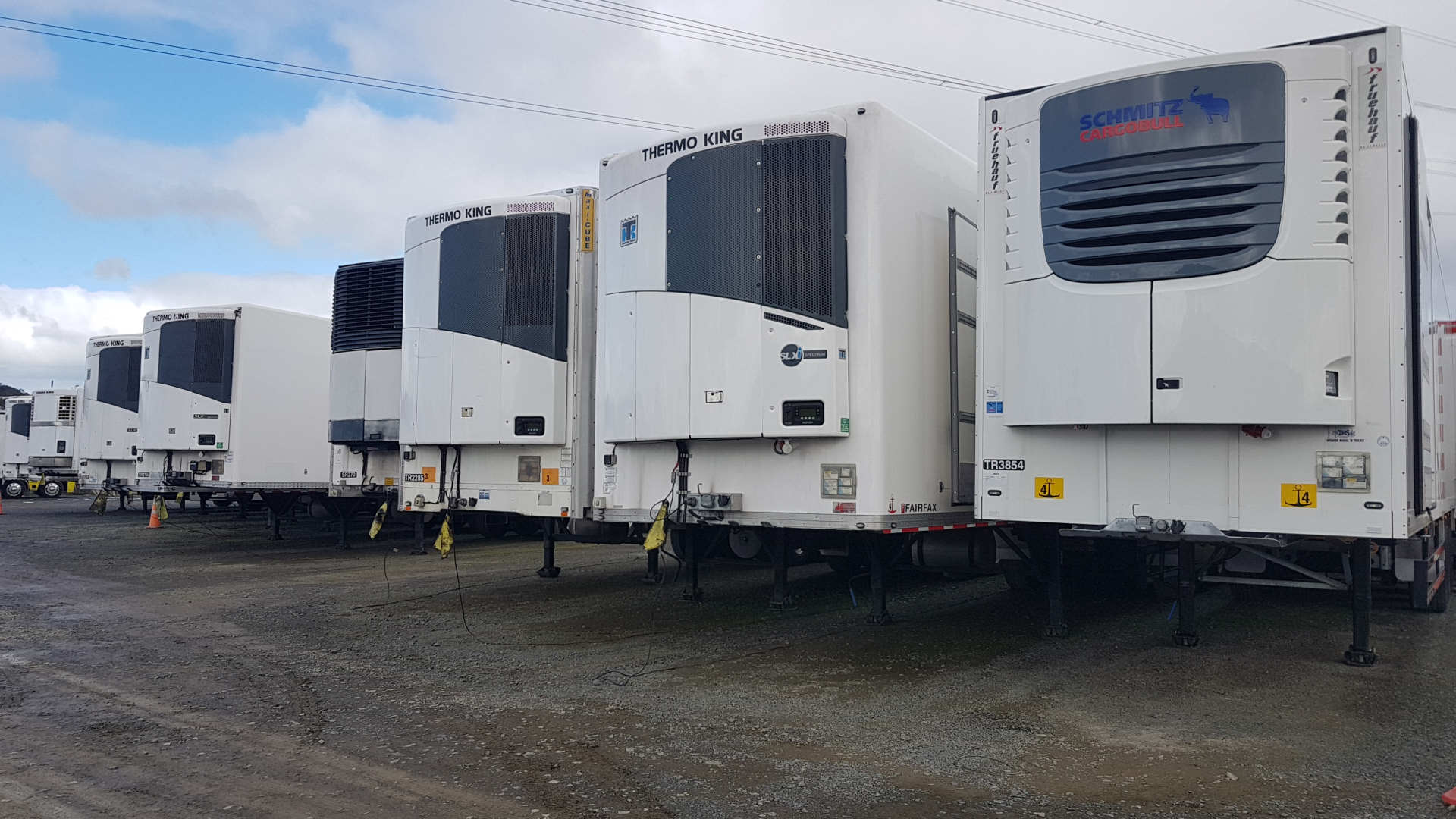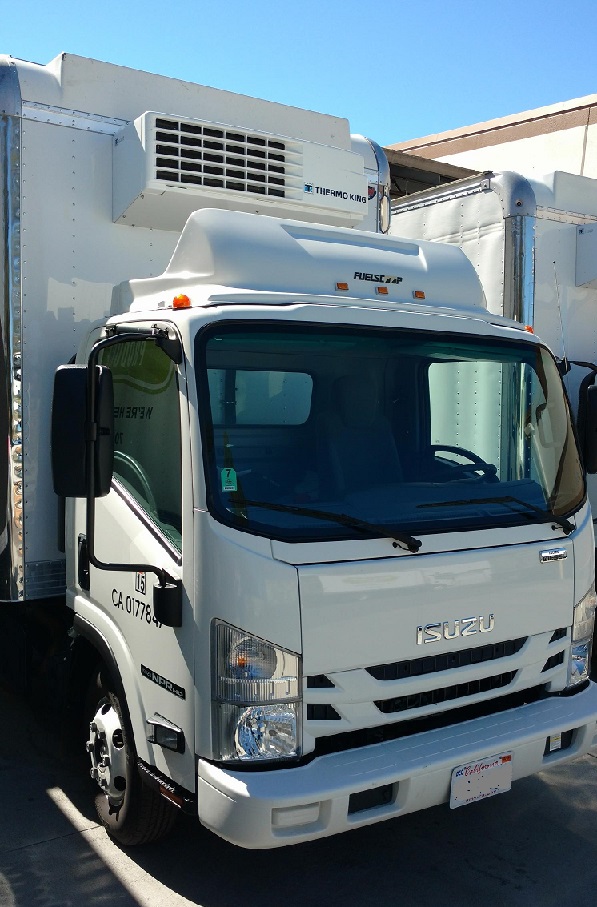Refrigerated Transportation Thermo King: Maintaining Goods Fresh en route
Refrigerated Transportation Thermo King: Maintaining Goods Fresh en route
Blog Article
Leading Advancements in Transportation Refrigeration: Enhancing Efficiency and Safety And Security
The landscape of transport refrigeration is undertaking considerable makeover, driven by technologies aimed at improving both efficiency and safety. As these advancements proceed to advance, it is important to explore their implications on functional methods and regulative conformity, prompting a more detailed exam of just how they improve the future of transport refrigeration.
Smart Temperature Level Monitoring Systems
In the realm of transportation refrigeration, clever temperature level tracking systems have actually arised as a vital development for guaranteeing the stability of temperature-sensitive goods. These advanced systems leverage Internet of Things (IoT) innovation to provide real-time data on temperature variations, allowing drivers to maintain optimum problems throughout the supply chain. By constantly tracking the temperature of refrigerated containers and vehicles, firms can quickly recognize variances that may jeopardize item quality.

Furthermore, wise tracking systems typically include automated informs and notices, permitting stakeholders to respond quickly to any type of prospective problems. This proactive approach not only reduces the danger of putridity yet likewise enhances conformity with regulative standards governing food safety and security and pharmaceutical transport.
The combination of data analytics within these systems additionally helps with predictive maintenance, helping drivers to anticipate prospective devices failings prior to they happen. This capacity minimizes downtime and enhances functional efficiency, eventually resulting in cost financial savings.
Eco-Friendly Refrigerants
Smart temperature surveillance systems play an essential role in preserving product top quality, however the efficiency of transportation refrigeration additionally rests on the choice of cooling agents utilized. As environmental problems rise, the shift towards eco-friendly cooling agents has come to be necessary. Conventional refrigerants, such as hydrofluorocarbons (HFCs), are infamous for their high International Warming Prospective (GWP), contributing considerably to environment modification. In comparison, emerging alternatives like hydrocarbon-based cooling agents and hydrofluoroolefins (HFOs) present lower GWP choices, using both effectiveness and sustainability.
These environment-friendly refrigerants not just reduce ecological influence but likewise align with international guidelines targeted at phasing out hazardous compounds. Their adoption can cause boosted energy effectiveness, ultimately reducing operating expense for transport refrigeration systems. The usage of all-natural refrigerants, such as ammonia and carbon dioxide, has actually obtained grip due to their excellent thermodynamic buildings and lower ecological impact.
Purchasing environment-friendly refrigerants is not simply a regulative compliance procedure; it represents a calculated decision that improves brand reputation and promotes client commitment. thermo king truck refrigeration units. By focusing on lasting practices, companies can contribute to a greener future while making certain the stability of transported items
Advanced Insulation Materials
Making use of sophisticated insulation materials is important for enhancing transportation refrigeration systems, as they substantially enhance power efficiency and keep consistent temperature level control. Conventional insulation approaches usually drop short in protecting against thermal transfer, resulting in raised energy intake and varying temperature levels within refrigerated areas.
Arising materials such as vacuum cleaner shielded panels (VIPs) and aerogels why not check here provide premium thermal resistance, enabling thinner accounts without endangering performance. VIPs, for circumstances, make use of a vacuum layer to reduce convective and conductive heat transfer, making them suitable for space-constrained applications. Aerogels, understood for their lightweight and porous framework, offer extraordinary insulation while dramatically decreasing general system weight.
Additionally, including phase change materials (PCMs) right into insulation systems can better stabilize temperatures during transit. These products soak up and launch thermal power, effectively buffering against outside temperature level variants.
The assimilation of these advanced insulation products not only lowers the operational costs connected with energy intake however also expands the service life of temperature-sensitive items. As the transportation refrigeration sector remains to advance, the fostering of cutting-edge insulation modern technologies will certainly be crucial in boosting both performance and safety and security in chilled transportation.
Automated Path Optimization
The effectiveness of transport refrigeration systems is considerably boosted via automated path optimization, which leverages sophisticated formulas and real-time data to determine one of the most reliable courses for shipment. By examining different factors such as website traffic patterns, climate condition, and delivery windows, these systems can significantly reduce traveling time and fuel consumption.
Automated course optimization lessens human error and subjective decision-making, which can lead to inadequacies. This innovation allows fleet supervisors to designate resources more properly, making sure that refrigerated items preserve their required temperature level throughout the journey. By maximizing paths, companies can additionally improve customer fulfillment through prompt deliveries.
Moreover, automated systems can adapt to unanticipated conditions, such as road closures or unexpected website traffic spikes, enabling for dynamic rerouting. This versatility not just safeguards the honesty of temperature-sensitive products yet also adds to overall check over here operational performance.
Executing automated route optimization can lead to significant cost financial savings while minimizing the carbon impact connected with transport. As businesses progressively focus on sustainability, this development attracts attention as an important part in modern transport refrigeration, lining up functional goals with environmental obligation. Inevitably, automated course optimization represents a considerable innovation in the quest for efficiency and security in transportation refrigeration.

Real-Time Data Analytics
Automated route optimization dramatically advantages from the combination of real-time data analytics, which gives essential insights into the efficiency of transport refrigeration systems. By utilizing real-time information, transport operators can check temperature variations and equipment efficiency, making sure that perishable items are maintained within called for parameters throughout transportation. This proactive strategy not only boosts the high quality of the delivered products however also alleviates the risk of wasting and loss.

In addition to boosting performance, real-time analytics enhances safety by ensuring conformity with regulative standards for temperature level control. This not just safeguards public health yet likewise fortifies a firm's track record - thermo king transport refrigeration. As the transportation refrigeration market evolves, the assimilation of real-time data analytics becomes a foundation for driving innovation, sustainability, and operational quality
Final Thought
In conclusion, the innovations in transport refrigeration dramatically improve both effectiveness and safety within the market. Jointly, these innovations represent an important advancement in transportation refrigeration, ensuring compliance with regulatory standards and promoting a greener future.
The landscape of transport refrigeration is undergoing considerable transformation, driven by innovations intended at improving both performance and security.Smart temperature monitoring systems play an important duty in preserving product quality, but the performance of transportation refrigeration additionally hinges on the selection of refrigerants utilized. Their adoption can lead to improved power performance, ultimately lowering operating costs for transport refrigeration systems. Eventually, automated path optimization represents a substantial innovation in the quest for performance and security in transportation refrigeration.
In final thought, the advancements in transport refrigeration considerably improve both performance and safety and security within the market.
Report this page